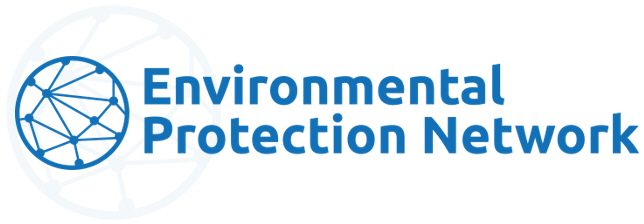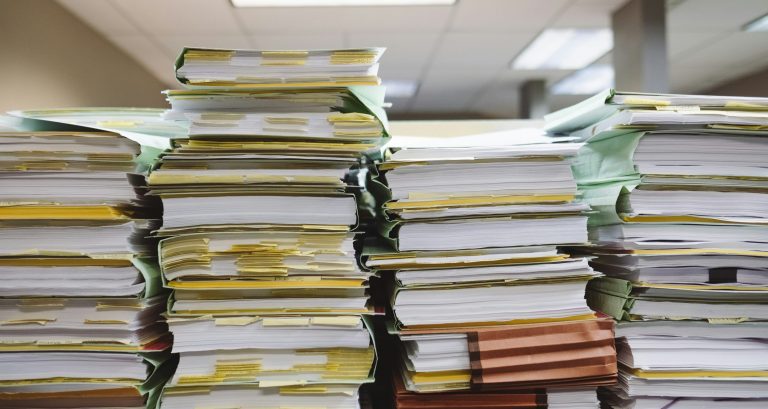We wanted to begin by noting that our fellow EPA EJ grantees in Kipnuk, Alaska, were struck by devastating flooding over the weekend. Although our grantee contact is okay, the situation is truly dire. It also underscores the importance of the climate resilience work awarded in Kipnuk and all over the country to protect our communities and our lives.
During these challenging times, please know that we stand beside you, and will continue to offer our support and resources, and potentially, a little hope on the horizon, including:
Webinars/Office Hours:
1. EPN/L4GG Reminders
Please sign up here to register for our future grants management/safeguarding federal funding calls. Our next call on Wednesday, October 22, at 12:30pm ET, will feature an update on the current landscape. We will no longer be recording or sharing slides, so be ready to take good notes!
2. Foundation Grant Writing for Grassroots Organizations
The Rose Foundation is hosting a free, four-week virtual webinar series on grant writing for small grassroots groups, including how to make your proposals stand out, avoid common pitfalls, and build lasting relationships with funders. Program officers will share what they look for in applications, and you’ll explore how to find funders that align with your mission and gain practical tips for crafting compelling budgets. The series runs Fridays, October 17–November 7, from 3–4:30pm ET. You can find more information below and on the Foundation’s website, and you can register here.
-
Friday, October 17th: From Readiness to Results: Grant Seeking 101
-
Friday, October 24th: Finding the Money: Prospecting & Funder Outreach
-
Friday, October 31st: Numbers with Purpose: Financials for Stronger Grant Proposals
-
Friday, November 7th: Reality Grantmaking: Funders Tell All
Litigation Updates:
3. Solar for All
The Southern Environmental Law Center and Lawyers for Good Government filed suit against the EPA in the Rhode Island District Court on October 6, on behalf of 8 Solar for All subrecipients and beneficiaries, requesting that the Solar for All program be reinstated and that the EPA be prevented now and in the future from interfering with the availability of Solar for All funds. This week, Harris County, TX—a prime SFA grantee—filed suit in District Court to reverse EPA’s termination decision. We will keep you informed as these cases progress.
4. Court of Federal Claims
As you know, the Supreme Court in American Public Health Association v. National Institutes of Health and Department of Education v. California has made it more difficult to get monetary relief from terminated grants in the District Court. Grantees may need to go into the Court of Federal Claims (COFC) to receive direct monetary relief. The COFC is a court specifically focused on contract claims. We will have more information to share in the coming weeks about the process for pursuing a COFC claim, pro bono resources that are available to support you, and potential considerations to weigh as you decide next steps. In the interim, we have two action items for you:
- First, we strongly encourage you to hold off on closing out your grants until we can fully brief you on your options, including potentially identifying pro bono attorneys to help you file in COFC to receive money damages for unlawfully terminated grants. If you have questions or need individual assistance with next steps, please reach out to L4GG via SFA@L4GG.org (Solar for All grants) or FPC@L4GG.org (all other grants).
- Second, to help expand your legal options, now is a great time to make progress on gathering all of your documents to help build your case. It will be important for you to identify and organize: 1) organizational compliance documents; 2) grant history, including chronology of all communications with your federal agency; and 3) any documentation regarding invoices or payments record. We will be distributing more detailed guidance next week (finally!).
Funding Opportunities:
5. Robert Wood Johnson Foundation Health Equity Scholars for Action (HES4A)
- Funding for transformative, action-oriented research that gets us to health equity faster.
- A technical mentor and a career coach who will help them build their skills, learn about career opportunities, and connect them with supportive people in their field, all based on their personal needs.
- Membership in a collaborative of like-minded colleagues and organizations that share ideas, work toward common goals, and find solutions so that everyone has a fair and equal chance to be as healthy as possible.
6. Solid Waste Infrastructure for Recycling (SWIFR) Grants
EPA’s SWIFR grant program will assist Indian Tribes and Intertribal consortia with local waste management authorities by supporting improvements to local post-consumer materials management, including municipal recycling programs, and assisting local waste management authorities in making improvements to local waste management systems.
Projects funded through the funding opportunity will:
- Implement the building a circular economy for all strategy series.
- Improve local post-consumer materials management programs, including municipal recycling.
- Make improvements to local waste management systems.
Applications are due December 12, 2025. Review the full SWIFR for Tribes and Intertribal Consortia Notice of Funding Opportunity for more information.
7. Multipurpose, Assessment and Cleanup (MAC) Grant
EPA’s FY26 Multipurpose, Assessment and Cleanup (MAC) grant application has not been released yet, but if you are interested in the opportunity, there are still a number of ways you can prepare for your application:
- Confirm your SAM.gov and Grant.gov accounts are up to date and accurate.
- Draft your Threshold Criteria Response and share it with EPA. EPA regional staff can review and provide feedback on your Threshold Criteria Response even after the competition has opened.
- Start drafting your budget: anticipated funding amounts have been released and likely won’t change much.
- Start assembling the data that will back your application narrative. EJscreen and CJEST have been taken down, so the Center for Creative Land Recycling recommends leveraging more local/regional data sources. Review Using Data to Make Your Case: Leveraging Investment for Equitable Redevelopment to get started.
- Schedule a meeting with CCLR to receive cost-free, one-on-one support for your land reuse project. CCLR can talk through your application strategy, respond to questions, review pieces of your narrative, and help you connect with partners and peers.
Resources:
8. Tribal Funding Registry (TFR)
TFR is a free searchable grants database designed for Tribes and Native-led nonprofits built by the Hozhonigo Institute, a Native-led nonprofit. If you need grant support, join TRF Office Hours, available five times per week: Mondays, 8am & 12pm PT; Wednesdays, 8am & 12pm PT; and Fridays, 8am PT.
- Sign up for the TFR Tribal Funding Registry.
- Subscribe to the TRF Newsletter.
Fellowship Opportunities:
9. Aya Fellowship
Across the U.S., equity and justice work is under attack – from legislative rollbacks of DEI efforts to organized campaigns targeting nonprofit and philanthropic leaders committed to racial, gender, and economic justice. As these threats intensify, organizations need more than just a commitment to equity; they need concrete strategies to defend, adapt, and persist in the face of backlash. The new Aya Fellowship was developed precisely in response to this moment.
This 12-month, consultancy-based program is designed to equip nonprofit and philanthropic leadership teams with the strategic resilience to sustain their efforts. The fellowship provides critical frameworks and practical tools for risk management, crisis navigation, and future-proofing initiatives while fostering a robust peer network for shared support and collective action. Unlike many fellowship programs that focus on individual growth, the Aya Fellows Program is purposefully built for teams of leaders within the same organization or ecosystem. This team-centered approach recognizes that the strength of our movement lies not in the brilliance of one leader but in the collective power of cohesive teams working in unison. The hope is that by investing in collective leadership now, we can build a stronger, more resilient sector ready to confront the challenges ahead.
Apply here by October 31, 2025, and learn more about Aya.
10. Rising Leaders Fellowship (RLF)
The Rising Leaders Fellowship (RLF) is a national power-building, virtual fellowship for emerging BIPOC and allied leaders driving equity and systems change. Over the course of seven months, 50 fellows based in the U.S. engage in interactive workshops, peer coaching, mentorship, and impact projects designed to strengthen their leadership and mobilization skills. The fellowship equips participants with tools to analyze power, organize for change, and advance justice-centered strategies within their organizations and communities. By fostering a strong national network of changemakers, RLF not only supports individual growth but also drives collective action, positioning BIPOC and allied leaders at the forefront of shaping more equitable and accountable systems. Round 1 applications are due by November 7, 2025. Apply here.
11. Dalai Lama Fellows 2026
The Dalai Lama Fellows program is accepting applications for its 2026 global cohort through November 12, 2025. Each year, the fellowship brings together 15–20 emerging leaders from around the world who are committed to advancing positive social change grounded in compassion, mindfulness, and ethical leadership.
Fellows, typically aged 20–36, are social innovators working on projects that address pressing local or global challenges — from climate action and community health to education and equity. Over the course of a year, they participate in an immersive Contemplative Leadership and Social Change curriculum that integrates personal transformation with practical skill-building.
The fellowship includes virtual learning, one-on-one coaching, peer dialogue, and a five-day in-person Contemplative Leadership Assembly, with travel, lodging, and meals covered for all participants. Through this experience, fellows join a lifelong global community of changemakers dedicated to leading with self-awareness, compassion, and courage. Learn more and apply here.

